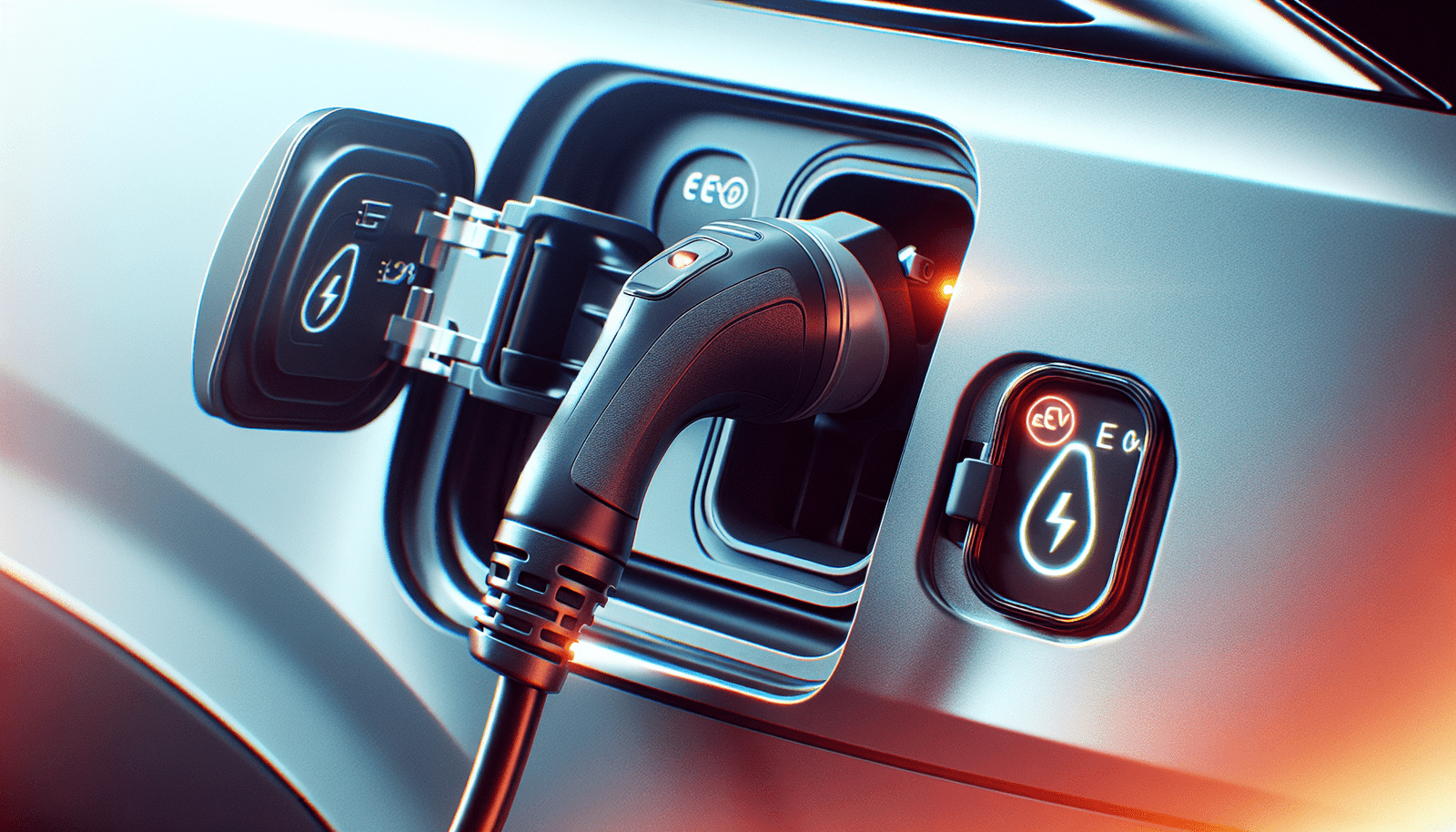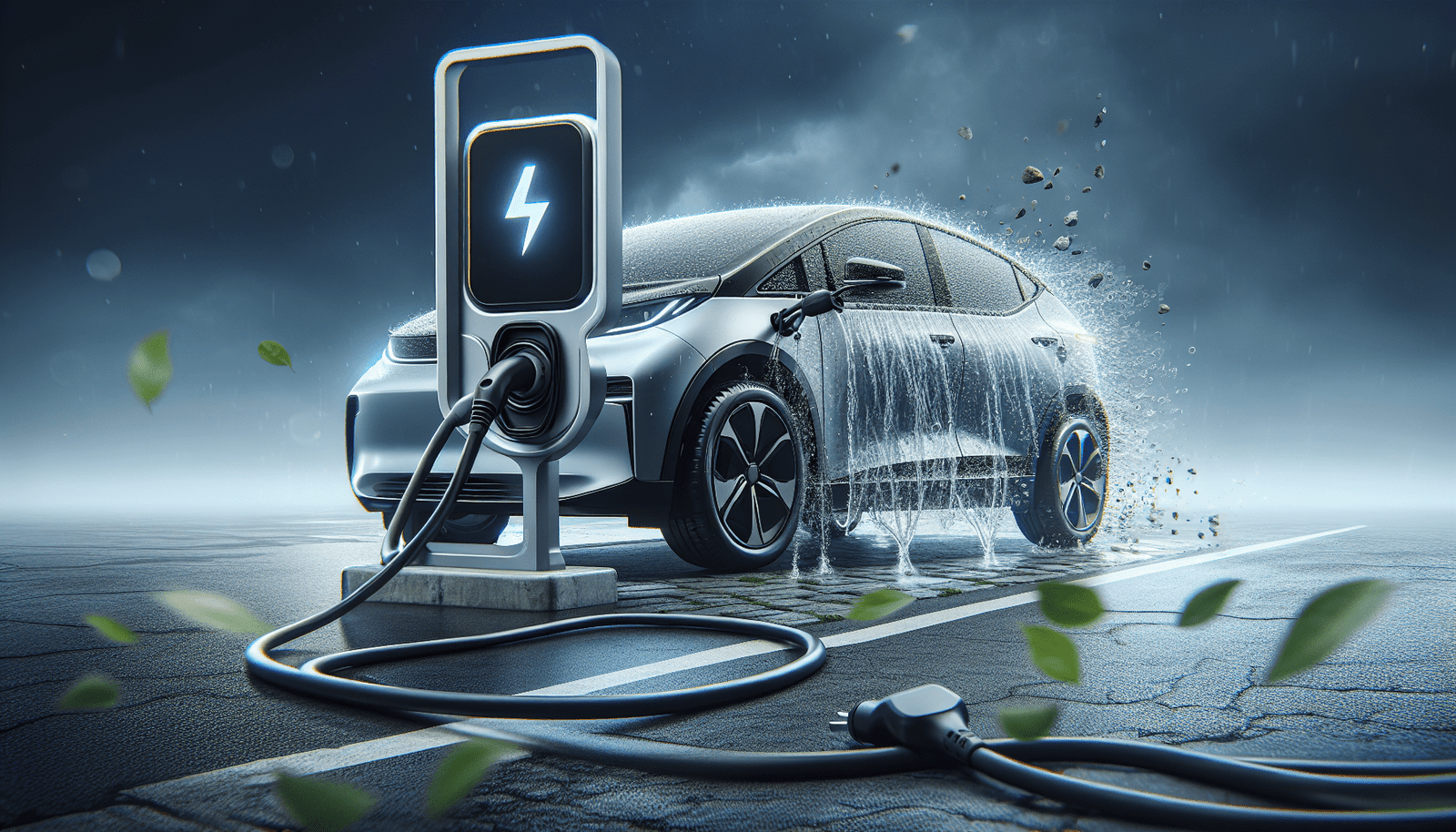Are you an avid electric vehicle user in search of a convenient way to charge your car? Or perhaps you’re someone interested in learning more about the latest EV charger product reviews. Look no further, because we have all the answers you need! In this friendly and approachable content, we’ll be addressing frequently asked questions about solar-powered EV charging station installation. From the basics of how it works to the advantages it offers, our concise and easy-to-understand FAQs will provide you with all the information you need. So, get ready to power up your electric vehicle sustainably, and don’t forget to check out our online shop for the latest options!
Understanding Solar-Powered EV Charging Stations
What is a solar-powered EV charging station
A solar-powered EV charging station is a system that combines solar panels and an electric vehicle (EV) charging station. It uses solar energy to power the charging station, providing a sustainable and environmentally-friendly method of charging EVs.
How does a solar-powered EV charging station work
A solar-powered EV charging station works by harnessing the power of the sun through solar panels. These panels convert sunlight into electricity through the photovoltaic effect. The electricity generated is then sent to a controller, which regulates and manages the flow of power.
The controller directs the electricity to an inverter, which converts it from direct current (DC) to alternating current (AC). This AC electricity is then used to power the EV charging station, which charges the electric vehicle connected to it. Any excess electricity generated by the solar panels can be stored in batteries for later use or fed back into the power grid.
Benefits of Solar-Powered EV Charging Stations
Eco-friendly and sustainable source of power
One of the key benefits of solar-powered EV charging stations is that they utilize a clean and renewable source of energy – the Sun. By relying on solar power, these charging stations help reduce greenhouse gas emissions and dependence on fossil fuels, contributing to a greener and more sustainable future.
Significant savings on electricity bills
When you have a solar-powered EV charging station, you can significantly reduce your reliance on grid electricity. By generating your own electricity from the sun, you can save on expensive electricity bills, especially if you charge your EV frequently. Over time, the savings can add up and help recover the initial investment in the solar-powered system.
Freedom from grid power
Using a solar-powered EV charging station provides you with the freedom to charge your electric vehicle anywhere, even in remote locations where there may be limited access to the power grid. With a self-sufficient solar charging system, you are no longer bound by the availability and cost of grid power, offering greater flexibility and convenience.
Components of a Solar-Powered EV Charging System
The solar panels
The solar panels are the heart of a solar-powered EV charging system. They consist of multiple solar cells that convert sunlight into electricity. It is important to choose high-quality solar panels that are efficient in converting sunlight into electricity and are durable enough to withstand various weather conditions.
The controller
The controller is responsible for regulating the flow of electricity from the solar panels to the inverter. It ensures that the charging system operates efficiently and maximizes the utilization of solar power. A good controller should have features such as overcharge protection and the ability to monitor the system’s performance.
The inverter
The inverter is the component that converts the DC electricity generated by the solar panels into AC electricity that can be used to power the EV charging station. It is important to select an inverter that is compatible with both the solar panels and the charging station, ensuring optimal efficiency and performance.
The EV charging station itself
The EV charging station is the final piece of the puzzle. It is the device that connects to your electric vehicle and charges its battery. When choosing an EV charging station, it is important to consider factors such as charging speed, compatibility with your vehicle, and any additional features or functionalities that you require.
Choosing the Right Equipment
Choosing the right solar panels
When selecting solar panels for your solar-powered EV charging station, it is important to consider factors such as efficiency, durability, and warranty. Look for panels that have a high efficiency rating, as they will generate more electricity from the same amount of sunlight. Additionally, opt for panels that come with a robust warranty to ensure long-term reliability.
Selecting an efficient controller
A controller plays a crucial role in the performance of a solar-powered EV charging system. Look for a controller that has advanced features like maximum power point tracking (MPPT), which optimizes the energy harvesting from the solar panels. Additionally, consider controllers that offer remote monitoring capabilities, allowing you to keep track of your system’s performance.
Inverter Recommendations
When it comes to inverters, it is important to choose one that is compatible with your solar panels and EV charging station. Look for inverters that have a high efficiency rating, as this will ensure that less electricity is wasted during the conversion process. It is also worth considering inverters that have additional features like grid-tie capability, which allows you to feed excess electricity back into the power grid.
Finding the perfect EV charging station
There are various EV charging stations available on the market, each with its own features and capabilities. Consider factors such as charging speed, compatibility with your vehicle, and any additional features or functionalities that you require. It may be helpful to read reviews and consult experts or fellow EV owners to find the perfect charging station that suits your needs.
Planning for Solar-Powered EV Charging Station Installation
Evaluating energy needs
Before installing a solar-powered EV charging station, it is important to evaluate your energy needs. Determine how much electricity you require for your electric vehicle and factor in any other household energy needs. This will help determine the size of the solar panel system and battery storage, if required, to meet your energy demands.
Conducting a site survey
A site survey is crucial to determine the best location for installing the solar panels and EV charging station. Consider factors such as the orientation and tilt angle of the panels for maximum sunlight exposure, as well as any shading or obstructions that may reduce their efficiency. Additionally, assess the distance between the charging station and your electric vehicle for convenience.
Checking for permits and regulations
Before installing a solar-powered EV charging station, it is important to check local permits and regulations. Some areas may require permits for solar installations or have specific guidelines for EV charging stations. Ensure that you comply with any zoning or building code requirements to avoid any potential issues or delays.
Installation Process
Installing the solar panels
The installation process starts with mounting the solar panels on a suitable location, such as a roof or ground-mounted structure. Ensure that the panels are securely attached and properly angled for maximum sunlight exposure. Connect the panels in a series or parallel configuration, depending on the voltage requirements of the charging system.
Setting up the controller and inverter
Once the solar panels are installed, connect them to the controller and inverter according to the manufacturer’s instructions. Ensure that all wiring and connections are properly secured to prevent any electrical issues. Set up the controller’s parameters and configure the inverter settings to ensure optimal performance and efficiency.
Mounting and connecting the EV charging station
Next, mount the EV charging station at a convenient location, such as a garage or outdoor area. Ensure that the charging station is properly secured and weatherproofed. Connect the charging station to the inverter and follow the manufacturer’s instructions for proper electrical connections.
Connecting the system to your vehicle
Finally, connect your electric vehicle to the charging station using the appropriate charging cable. Ensure that the connection is secure and follow any safety instructions provided by the charging station and vehicle manufacturer. Once connected, the charging station will begin charging your electric vehicle with the solar energy generated by the system.
Maintaining Your Solar-Powered EV Charging Station
Regular cleaning
Regularly clean the solar panels to ensure maximum sunlight absorption. Remove any dirt, debris, or snow that may accumulate on the panels, as these can reduce their efficiency. Use a mild detergent and a soft cloth or brush to gently clean the surface of the panels. Avoid using abrasive materials or harsh chemicals that may damage the panels.
Checking wiring and connections
Periodically inspect the wiring and connections of your solar-powered EV charging system to ensure that they are secure and in good condition. Look for any signs of wear or damage, such as loose wires, frayed insulation, or corrosion. If any issues are identified, contact a professional electrician to make the necessary repairs.
Solar panel maintenance
In addition to regular cleaning, it is important to monitor the performance of your solar panels. Keep an eye out for any signs of degradation or reduced efficiency, such as a decrease in electricity generation. If significant issues are detected, it may be necessary to contact the manufacturer or a professional solar installer to assess and resolve the problem.
Costs and Financial Benefits
Cost of equipment
The cost of solar panels, controllers, inverters, and EV charging stations can vary depending on factors such as brand, quality, and specifications. It is important to carefully consider your budget and compare different options to find the most cost-effective equipment that meets your requirements.
Installation costs
In addition to the cost of equipment, there are also installation costs to consider. These can include expenses such as labor, permits, and additional materials required for the installation. It is recommended to obtain quotes from multiple installers to ensure a fair and competitive price.
Savings from using solar power
One of the major financial benefits of a solar-powered EV charging station is the potential savings on electricity bills. By generating your own electricity from the sun, you can reduce or even eliminate your reliance on grid power, resulting in significant cost savings over time. The amount of savings will depend on factors such as your energy usage, the size of the solar panel system, and the cost of grid electricity in your area.
Government incentives and tax benefits
In many countries, there are government incentives and tax benefits available for installing solar-powered systems. These can include grants, rebates, tax credits, or feed-in tariffs that can help offset the initial investment and reduce the payback period. Check with your local government or energy authority to see if there are any incentives or benefits available in your area.
Frequently Asked Questions
How much sunshine is required for the solar-powered EV charging station to work effectively?
Solar-powered EV charging stations can still function effectively even in cloudy or overcast conditions. While direct sunlight is ideal for maximum electricity generation, modern solar panels are designed to utilize diffused sunlight as well. However, the charging speed may be slower during periods of limited sunlight.
Can the solar charging system provide power for other household needs as well?
Yes, depending on the size of the solar panel system and its capacity, it is possible to generate enough electricity to power other household appliances and devices. This can further reduce your reliance on grid power, leading to additional savings on your electricity bills.
What to do during periods of low sunlight?
During periods of low sunlight, when the solar panels are unable to generate enough electricity to fully charge your electric vehicle, you can rely on grid power as a backup. Many solar-powered EV charging stations are designed to seamlessly switch to grid power when necessary, ensuring that your electric vehicle remains charged and ready to go.
How long will the solar panels last?
High-quality solar panels can have a lifespan of 25 years or more. However, their efficiency may gradually decrease over time. Regular maintenance and monitoring can help ensure optimal performance and identify any issues that may need to be addressed.
Safety measures during installation and usage
During the installation process, it is important to follow all safety guidelines and instructions provided by the equipment manufacturers. If you are not experienced in electrical work, it is recommended to hire a professional installer to ensure that the system is installed safely and correctly. Additionally, always follow the safety instructions provided by the EV charging station and electric vehicle manufacturers to minimize any potential risks during usage.
Shopping for Solar-Powered EV Charging Stations
What to look for in an EV charging station
When shopping for an EV charging station, consider factors such as charging speed, compatibility with your electric vehicle, connectivity options, and any additional features or functionalities that you require. Look for charging stations that offer safety features like overcurrent protection and weatherproof construction for durability and peace of mind.
Recommended models and brands
There are several reputable brands and models of solar-powered EV charging stations available on the market. It is recommended to research and read reviews to find the best options that suit your needs. Consult experts or fellow EV owners for recommendations based on their experiences and consider factors such as reliability, customer support, and warranty when making your decision.
Where to buy
Solar-powered EV charging stations can be purchased from a variety of sources, including online retailers, specialty EV charging equipment stores, and local electricians or solar installers. Consider the convenience, pricing, and warranty offered by each source when deciding where to make your purchase.
Online vs offline shopping
Both online and offline shopping have their advantages. Online shopping offers convenience, a wider selection of products, and the ability to compare prices and read customer reviews. Offline shopping, on the other hand, allows you to see and touch the products before making a purchase and provides the opportunity to receive personalized assistance from knowledgeable staff. Choose the shopping method that best suits your preferences and needs.





